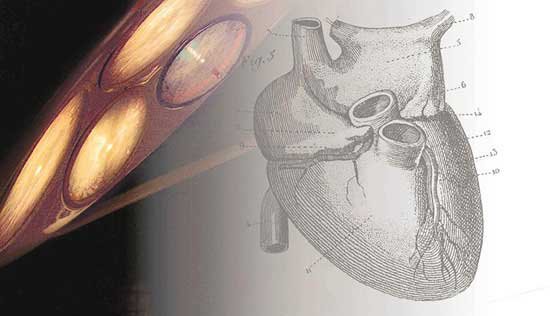Organ transplants | A successful mixture | Economist.com
Organ transplants
A successful mixture
Jan 24th 2008
From The Economist print edition
Transplanting immune-system stem cells along with kidneys stops rejection
WOE to the patient waiting for someone to offer up a spare organ for transplantation. Demand so far exceeds supply these days that in America alone around 17 people die every day while languishing in the queue. Nor do problems end there. Even the lucky ones, who do get their desired replacement part, face a lifetime on immunosuppressant drugs, to stop the alien tissue being rejected by their own immune systems.
David Sachs and Benedict Cosimi, of Harvard Medical School, have been working for some time to find a way around these problems. Their goal has been to trick the body into thinking that a foreign organ is really a native one, so that its immune system refrains from rejecting the foreigner. In this week's New England Journal of Medicine they report a small but promising study that, if confirmed on a grander scale, may deal with the issue once and for all and usher in a world in which immunosuppressant drugs are unnecessary and organs no longer need be matched to patients. That would make the lives of transplant patients easier and longer, and might also increase the useful supply of organs available for transplant.
Dr Sachs and Dr Cosimi tricked the body by transplanting a part of the donor's bone marrow along with the organ. Since the cells of the immune system are derived from stem cells in the bone marrow, these patients go on to develop what is known as chimeric immunity, which blends elements from the immune systems of both the donor and the recipient.
The process begins with the partial destruction of the recipient's own bone marrow using a drug called cyclophosphamide, followed by treatment with an antibody that depletes his supply of T cells, the part of the immune system that is most implicated in organ rejection. Once that is done, the organ (in this case a kidney) and the bone marrow are transplanted and the patient is confined for a fortnight in a sterile environment to protect him from infection while his new, mixed immune system boots up.
Dr Sachs and Dr Cosimi tried their new procedure on five people and it worked for four of them (though they did modify the process slightly after the third patient, by including antibodies against B cells, a second part of the immune system). On each occasion they transplanted a kidney that was, immunologically speaking, a poor match for the recipient. And in each of the four successful cases they were able take the patient off immunosuppressant drugs within 8-14 months, with no sign of rejection. All four of these patients are still alive; indeed, the first has now survived for more than five years. (The one failure later received a standard transplant, followed by a permanent regimen of immunosuppressant drugs, and is also still alive.)
Although the technique looks promising, it is a mystery why it should work. You would think that a chimeric immune system would be more active, not less, and would therefore attack the recipient's other organs, since they look foreign to the transplanted immune cells. Not so. Nor is it clear how the transplanted immune cells stop the existing ones from attacking the new organ. And, the immune system does not stay chimeric forever. Eventually, the original one predominates and the transplanted one vanishes (or, at least, becomes undetectable). Yet the transplant's protective effect persists with no sign, as yet, of diminishing—and there is every reason to believe, based on the results of experiments on monkeys, that it will not diminish in the future.
Four successes are not, of course, proof of a reliable technique. And even if the approach works for kidneys, it has yet to be tested for other organs. Neither does eliminating rejection increase the supply of organs for transplant, even though it means that fewer will be wasted. But Dr Sachs and Dr Cosimi have a suggestion here, too. They hope their discovery may allow organs to be transplanted from other species, such as pigs, and have filed a patent based on the idea.
Xenotransplantation, as this idea is known, really would increase the supply of organs, but it is a controversial idea. The “yuck” factor that cross-species transplants would probably provoke would surely fade if lives were saved. However, xenotransplantation brings the risk of transplanting animal viruses and thus creating new human diseases. It would be an irony if something intended to preserve lives ended up destroying them.

No comments:
Post a Comment